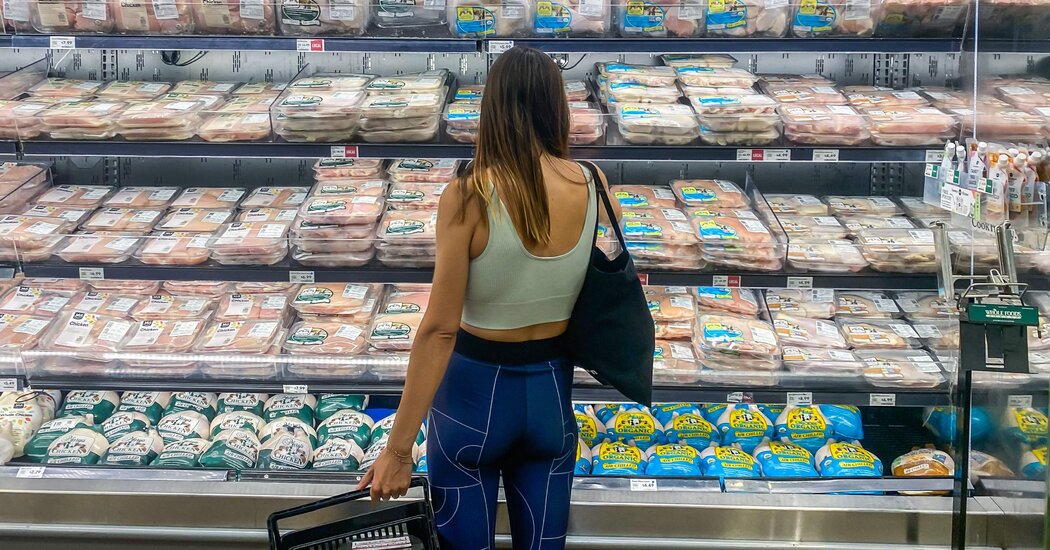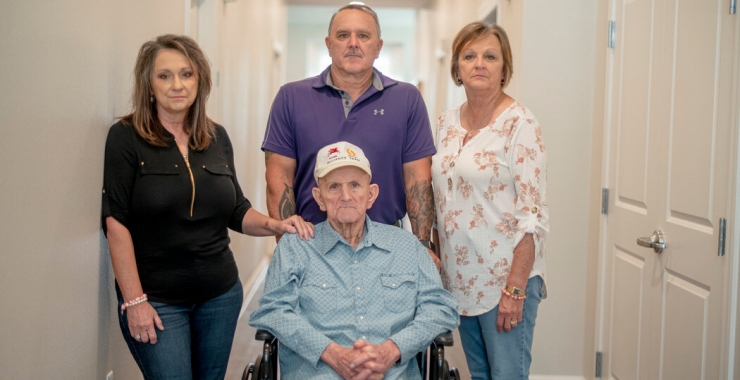Decoding the Surprise Consumer Inflation Report
The economy keeps us guessing
Yesterday’s surprise of an inflation report, which showed consumer prices rose last month rather than fell, as many had predicted, continues to buffet the markets. Stocks in Asia and Europe sank this morning as fears grow that to cool off inflation, central banks, led by the Fed, will need to quash consumer demand through more aggressive interest-rate increases. Economists at Nomura and Larry Summers, the former Treasury secretary, are among those arguing that the Fed should raise its benchmark rate by a full percentage point next week. The S&P 500 tumbled more than 4 percent yesterday, the biggest one-day drop since June 2020, on interest-rate jitters.
Given a year of surging prices, how could Wall Street have gotten the inflation picture so wrong? Recency bias is partly to blame. Up until last year, we’ve had a decade of relatively low inflation and interest rates. There is also positive bias, with investors thinking that the Fed would be able to contain inflation while merely slowing the economy, i.e. the elusive soft landing.
The economy is full of paradoxes. Inflation is high, but growth is low. The job market is hot, but wages are not keeping up with rising prices. And despite inflation, consumers continue to spend more. What comes next? Here are the things that still have Wall Street and economists guessing.
Is the economy good or bad?
-
The good: The Times’s Ben Casselman and Lauren Leatherby evaluated 14 economic indicators and found that most pointed to a good economy. (Casselman also told The Times’s On Politics newsletter that the jobs market was “arguably very good,” but that other factors were mixed.)
-
Bad: Indicators such as a slowdown in building permits and sluggish retail sales point to a worsening economy.
-
What to watch: Most economic measures are trending down, but at least they’re not tumbling. If we start to see more abrupt drops in income or retail sales, then it is time to worry.
Is the job market cooling off?
-
No: It doesn’t appear so. Employers added 315,000 jobs last month. There were more than 11 million open positions at the end of July.
-
But: A surprising number of workers remain on the sidelines of the economy. And hiring, while still strong, is slowing.
-
What to watch for: Layoffs. When unemployment rises, even modestly, during times of elevated inflation, it usually signals a recession.
What about consumers? Will they keep spending?
-
Glass-half-full take: The fact that inflation hasn’t chilled spending suggests there is plenty of demand. And there is no sign that post-pandemic splurges on things like travel will ebb.
-
Half-empty: Wages are up, but they are not up as much as inflation. Eventually inflation will limit just how much people can spend.
-
What to watch for: Consumer sentiment, as measured by the University of Michigan surveys, has been improving lately. Still, the reading remains quite low, even below levels seen at the beginning of the pandemic. If that measure turns down again, that too could be a sign we are headed for a recession. The next reading comes out on Friday.
HERE’S WHAT’S HAPPENING
Google mostly loses an appeal over a huge E.U. antitrust fine. The European Union’s General Court largely upheld a multibillion-dollar fine against Google for anticompetitive tactics involving its Android operating system. It was a victory for the E.U.’s antitrust regulator after it lost cases involving Intel and Qualcomm. Google can still appeal.
The U.S. poverty rate drops to a record low. The rate fell to 7.8 percent last year, down from 9.2 percent in 2020, according to a Census Bureau measure that accounts for federal pandemic aid. But many of those emergency programs have since expired, putting families under financial strain again.
Warner Bros. Discovery lays off 110 employees. The job cuts, largely in ad sales, are part of the company’s effort to shed $3 billion in costs following Discovery’s expensive takeover of WarnerMedia. Sources told The Times that more layoffs would come over the next two months.
Amazon plans to raise pay for delivery drivers. The company will set aside $450 million for higher wages and benefits for its Delivery Service Partners network. It’s Amazon’s latest bid to retain workers in a tight labor market ahead of the crucial holiday season.
‘Arbs’ unfazed by Mudge testimony
Twitter shares defied a 5 percent sell-off in the Nasdaq yesterday, closing higher even as the social network’s former security chief testified before Congress about his claims that the company had misled regulators and consumers about its security practices.
Among the juiciest assertions from Peiter Zatko, known as Mudge: The F.B.I. informed him that at least one official from China’s Ministry of State Security was “on the payroll inside Twitter.”
Much focus has been on arbitrageurs, or “arbs,” hedge funds that are betting on whether the company’s $44 billion sale to Elon Musk will go through, despite the billionaire’s efforts to walk away. The deal has been called “an arb trader’s dream,” given the frenetic pace of news revelations that affect the company’s stock price. The whistle-blower claims by Mudge gave arbs a huge new variable to consider. As The New Yorker’s Ronan Farrow reports, those investors have employed tactics like hiring research groups to examine his credibility. (For the record, that’s not a new development.)
But these hedge funds apparently weren’t particularly alarmed by Zatko’s testimony. Nor were rank-and-file investors. As expected, Twitter shareholders overwhelmingly approved the transaction.
Lawmakers focused on national security issues, particularly Zatko’s assertion that the personal information of Twitter’s 400 million users was at risk. They seemed less preoccupied with how much spam was on Twitter, a key concern of Musk’s. While Zatko has accused Twitter of violating a consent decree with the F.T.C. — a charge Musk’s lawyers have seized upon — he told lawmakers that he hadn’t been directly involved in conversations between the company and the regulator.
Meanwhile, in Delaware … Yesterday, the state’s Court of Chancery, the venue for the trial over whether Musk can back out of the deal, posted unredacted text messages between the billionaire and his bankers. The messages, some of which previously had been read aloud in court, shed new light on what Musk and his advisers were thinking as he debated whether to proceed with the deal.
Here are texts Musk sent to Michael Grimes, his lead banker at Morgan Stanley, on May 8, less than two weeks after Musk and Twitter announced a deal:
-
An extremely fundamental due diligence item is understanding exactly how Twitter confirms that 95% of their daily active users are both real people and not double-counted
-
If that number is more like 50% or lower, which is what I would guess based on my feed, then they have been fundamentally misrepresenting the value of Twitter to advertisers and investors
-
To be super clear, this deal moves forward if it passes due diligence, but obviously not if there are massive gaping issues.
“In our social market economy, profits are OK, they are good. But in these times it is wrong to receive extraordinary record revenues and profits benefiting from war and on the back of consumers.”
— Ursula von der Leyen, president of the European Commission, announcing a $140 billion windfall tax proposal on energy company profits this morning. The proceeds would be funneled back to homes and businesses to help pay for escalating power bills.
New York is still missing 176,000 jobs
As corporate America calls workers back into the office, the darkest days of the pandemic seem behind us. But New York stands out. It still hasn’t recovered all the jobs it lost during the pandemic. Employment in the city remains 176,000 workers below where it was in early 2020, according to the latest employment data.
New York is recovering slower than any other major metropolitan area, report The Times’s Nicole Hong and Matthew Haag. Much of that is because the city was hit particularly hard by the first wave of the pandemic compared with the rest of the country. In the first two months of the health crisis, the city lost one million jobs — the most of any city. In July, the city’s unemployment rate was 6.1 percent, compared with 3.5 percent in the country overall.
New York relies more than other cities on tourists. Visitor figures to the Big Apple are running at 85 percent of 2019 levels. But there have been fewer business travelers and international tourists, who tend to stay longer.
The office sector hasn’t fully recovered. When the pandemic forced the city to shut down, many of the professionals who worked in Manhattan skyscrapers were able to do their jobs effectively from home. That wasn’t true of the office cleaners, security guards and bartenders who catered to the office workers. And large companies are just starting to require workers to return to their offices.
A lopsided recovery. Despite the rebound, the number of New Yorkers receiving government assistance has jumped by almost a third since early 2020. Higher paying jobs in tech, finance and health care are growing the fastest, according to an analysis by James Parrott, an economist at the Center for New York City Affairs at the New School. The current forecast is that the city isn’t expected to reach prepandemic employment levels until 2026 — that is, if we don’t hit a recession first.
THE SPEED READ
Deals
-
Citigroup expects to sell or spin off its consumer business in Mexico next year. (Reuters)
-
Tencent Music reportedly plans to start trading on the Hong Kong Stock Exchange as soon as next week. (Bloomberg)
-
The billionaire founder of the clothing retailer Zara is now betting $700 million on U.S. warehouses. (Bloomberg)
-
The manager of the YouTube phenom Mr. Beast has raised $100 million from the investment firm TCG to find the next big online media business. (NYT)
Policy
Best of the rest
-
The N.B.A. suspended Robert Sarver, the majority owner of the Phoenix Suns, and fined him $10 million over misconduct that included using racial slurs. (NYT)
-
The hedge fund billionaire Paul Tudor Jones is betting big on advanced data analytics for N.F.L. teams. (WSJ)
-
Jaz Brisack, the Rhodes scholar who helped lead a unionization effort at Starbucks, has accused the company of forcing her out. (NYT)
-
Celsius, the crypto lender that filed for bankruptcy in July, is plotting a comeback. (NYT)
Thanks for reading! We’ll see you tomorrow.
We’d like your feedback. Please email thoughts and suggestions to dealbook@nytimes.com.
We’d like your feedback! Please email thoughts and suggestions to dealbook@nytimes.com.




